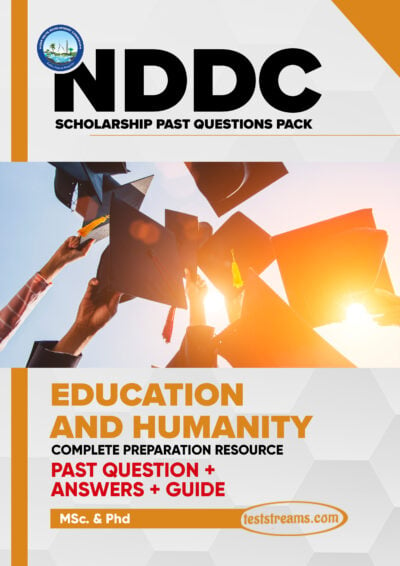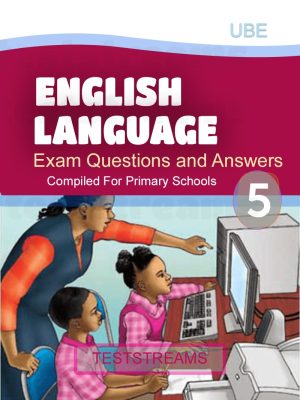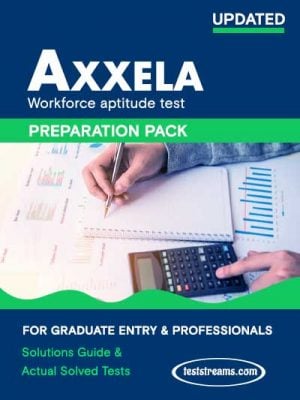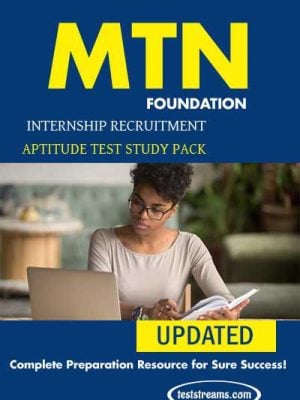NDDC Scholarship Education and Humanities Past Questions And Answers [Free – Download]
Are you a bright and ambitious student from the Niger Delta region dreaming of pursuing higher education in the field of humanities? The Niger Delta Development Commission (NDDC) Scholarship Program is the gateway to your academic aspirations. As part of our commitment to nurturing the future leaders of Nigeria, we are excited to announce a limited-time sale on NDDC Scholarship Education and Humanities Past Questions and Answers! Discover how this invaluable resource can propel you towards scholarship success and secure your path to a brighter future.
- The NDDC Scholarship Advantage:
The NDDC Scholarship Program is renowned for empowering deserving students with the opportunity to pursue higher education, both within the country and internationally. This prestigious scholarship covers a wide range of disciplines, including humanities, and is designed to create a pool of exceptional talents poised to make a positive impact on their communities and the nation as a whole.
- Why Past Questions and Answers Matter:
The journey to scholarship success requires diligent preparation, and there’s no better way to enhance your readiness than with past questions and answers. Our carefully curated collection of NDDC Scholarship Education and Humanities Past Questions and Answers offers a comprehensive review of previous exam papers, equipping you with a strategic advantage over other applicants.
- Tailored Exam Preparation:
The past questions and answers package provides a sneak peek into the exam format, question patterns, and topics frequently covered in previous years. This invaluable insight allows you to tailor your study plan, focusing on the areas that matter most and ensuring a well-rounded approach to your preparation. By leveraging this resource, you can optimize your efforts and achieve a competitive edge in the scholarship selection process.
What Makes Our NDDC Scholarship Past Questions Stand Out?
- Comprehensive Coverage: Our collection spans multiple years, ensuring that you’re well-prepared for any surprises the exam might throw your way.
- Detailed Answers: Each question is accompanied by a comprehensive answer guide, allowing you to learn from your mistakes and reinforce your knowledge.
- Exam-Relevant Content: Our team of experts has painstakingly compiled the most relevant topics and questions that align with the NDDC Scholarship exam syllabus.
About NDDC Scholarship Test Style and Format (Updated)
NDDC overseas scholarship test was conducted by Cinfores-Ltd, between 2010 and 2015. Since 2016, the tests are now conducted by MEIL (MARG Educational International Limited).
The test usually comprises of 2 sections –
1. General questions which everyone will have to sit, and
2. Discipline-based questions.
For example, candidates in Engineering and Science related disciplines could take a mix of science-based questions like maths, English, physics, and chemistry for part 1, then discipline-specific questions for part 2.
2016 and 2017 tests contained more discipline-specific tests and English language tests as general papers. The test usually lasts between 30 to 60 minutes.
Sample Past Questions for NDDC Scholarship Aptitude Test – for Education and Humanities candidates
Instruction: Fill in the missing spaces with the appropriate answers from the options lettered A-E.
1. What is the origin of the word Education?
(a) ‘E’ and ‘Catum’
(b) Edu and ‘Catum’
(c) Word ‘Educate’
(d) None of these.
2. Which of the following statements is correct?
(a) Education is an art
(b) Education is a science
(c) It is neither an art nor science
(d) To some extent it is art and to some extent it is science.
3. What is called education acquired without any specific purpose, fixed period and place?
(a) Indirect Education
(b) Individual Education
(c) Informal Education
(d) Formal Education.
4. Which one of the following sentences is correct about the nature of teaching?
(a) It is diagnostic
(b) It is remedial
(c) It is diagnostic as well as remedial
(d) All the above statements are correct.
5. What is the compulsory element of learning?
(a) Ability to read
(b) Bright Mind
(c) Tendency to know
(d) None of these.
6. What is the place of principal in an educational institute?
(a) Overall head of the school
(b) Manager of the school
(c) Owner of the school
(d) Founder of the school.
7. If a student failed in any class what should be done to him?
(a) He should be given a chance to improve and sent to the next class after he improves
(b) He sfmuld be kept in the same class
(c) He should be advised to leave studies
(d) All the above methods are right.
8. Why are curriculum activities used in teaching?
(a) Make teaching easy
(b) To make teaching interesting, easy to understand and effective
(c) To make teaching attractive
(d) To assist the teacher.
9. What are the three components of the educational process?
(a) Education, teacher and books
(b) Teacher, student and education
(c) Teaching, learning and practice
(d) Direction, instruction and skill.
10. What is teaching through deductive method?
(a) From general to specific
(b) From specific to general
(c) From macro to micro-
(d) From easy to difficult.
11. What is the main centre of informal Education?
(a) Society
(b) Family
(c) Radio and Television
(d) All of the above.
12. Which is the first school for a child’s education?
(a) Society
(b) Friends
(c) Family
(d) School.
13. Which one of the following education systems supports scientific progress?
(a) Realistic Education
(b) Idealistic Education
(c) Naturalistic Education
(d) None of these.
14. What is the meaning of lesson plan?
(a) To read the lesson before teaching it
(b) To prepare all that the teacher wants to teach in a limited period
(c) To prepare detailed answers of all the questions to be asked in the class
(d) To prepare the list of questions to be asked.
15. On what depends the values of an educational experience in the eyes of the idealist?
(a) Whether or not the pupil has been properly motivated
(b) Whether or not it preserves accepted institutions
(c) The extent to which it satisfies pupil desires
(d) The manner in which it affects future experience.
16. Which educational activity is most desirable to the pragmatist?
(a) Approximates the goals which educational scientists have set up
(b) Results from the indiscrimination of the pupil in democratic theory.
(c) That is beneficial effect upon the future experiences of the pupil
(d) That characterizes by spontaneous, active, continuously pleasurable and practical for the pupil.
17. What is the view point of progressive educators regarding the issue of liberal vs. vocational education?
(a) Vocational ends load one to degrade learning
(b) Liberal arts subject should proceed vocational training
(c) Vocational and liberal education should not be separated
(d) All subjects should have a vocational orientation.
18. Who was the supporter of Naturalism in Education?
(a) Frolbel
(b) Armstrong
(c) John Locke
(d) Rosseau.
19. What do you mean by curriculum?
(a) A child learns through curriculum
(b) Sum total of the annual study
(c) Sum total of the activities of a school
(d) Indicates the course to be taught by the teachers to the students throughout the year.
20. Who is the current minister for education?
(a) Lai Mohammed
(b) Ahmed Usman
(c) Ben Nwaora
(d) Adamu Adamu.
21. Who raised the slogan “Back to Nature”?
(a) Realism
(b) Pragmatism
(c) Naturalism
(d) Existentialism.
ANSWERS
1. (a) 2. (d) 3 (c) 4. (d) 5.(c) 6. (b) 7. (a) 8. (d) 9.(6) 10. (a) 11. (d) 12.(c) 13. (a) 14. (a)
15. (b) 16. (a) 17. (b) 18. (d) 19. (d) 20. (d) 21. (c) 22. (d) 23. (b) 24. (b) 25.

Other Related Packs
PRODUCTION ENGINEERING.
PETROLEUM ENGINEERING
ELECTRICAL ENGINEERING
AGRICULTURAL ECONOMICS
CIVIL ENGINEERING
MECHANICAL ENGINEERING
ENVIRONMENTAL SCIENCE
MEDICAL SCIENCE
MANAGEMENT SCIENCE
EDUCATION AND HUMANITIES.
FISHERIES
GEOLOGY.
JOURNALISM
CHEMISTRY
CHEMICAL ENGINEERING.
BIOLOGY
COMPUTER ENGINEERING








